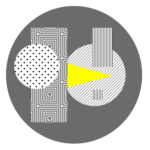Academics and researcher
 Urban development transforms the somatic landscape of the city affecting individuals’ place attachments and experiences. Urban landscapes can be interpreted as ideological constructs whose physical set ups reflect and maintain social power relations. The senses play a crucial role in mediating, structuring and contesting these. The Sensory Cities network strongly advocates to reveal the ideological nature of the senses which frame power relations historically and socially in the city. An interdisciplinary approach to research on the senses is therefore essential. Within the academic realm, the way senses shape and are shaped by the experience of the urban environment have been researched from a diverse range of disciplines including biology, psychology, history or sociology to mention a few. Each discipline adds a valuable, yet different, understanding on the ways senses operate, are understood or frame experiences. The question is how to map the interaction between different senses and over time. And, lastly, the translation processes that need to occur to pin down the often ephemeral and ideological qualities inherent in the sensory experiencing and framing of places.
Urban development transforms the somatic landscape of the city affecting individuals’ place attachments and experiences. Urban landscapes can be interpreted as ideological constructs whose physical set ups reflect and maintain social power relations. The senses play a crucial role in mediating, structuring and contesting these. The Sensory Cities network strongly advocates to reveal the ideological nature of the senses which frame power relations historically and socially in the city. An interdisciplinary approach to research on the senses is therefore essential. Within the academic realm, the way senses shape and are shaped by the experience of the urban environment have been researched from a diverse range of disciplines including biology, psychology, history or sociology to mention a few. Each discipline adds a valuable, yet different, understanding on the ways senses operate, are understood or frame experiences. The question is how to map the interaction between different senses and over time. And, lastly, the translation processes that need to occur to pin down the often ephemeral and ideological qualities inherent in the sensory experiencing and framing of places.
Reading suggestions:
David Howes on the Sensory Revolution





